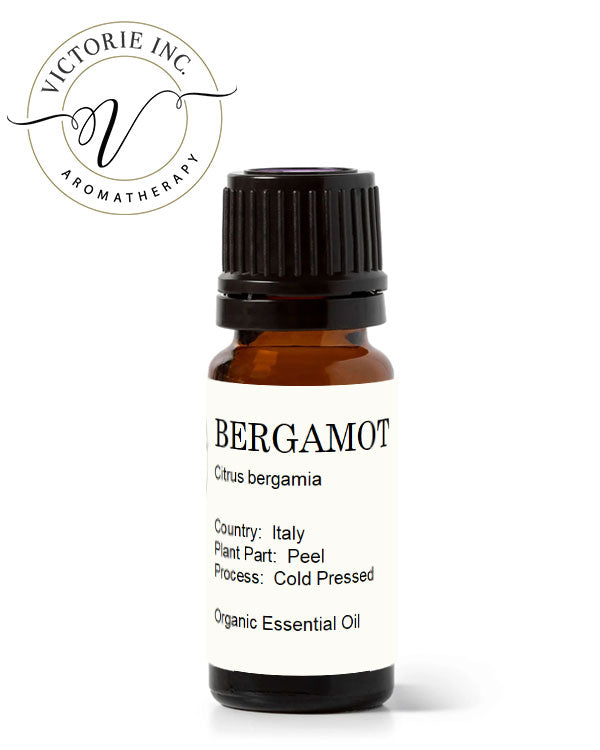
Bergamot Organic Essential Oil
Bergamot Organic Essential Oil
Scientific Name: Citrus bergamia
Country of Origin: Italy
Distillation Method: Pressing Cold
Plant Part: Peel
Perfume Note: Top
This Bergamot has slightly sweet green, citrus aroma a little deeper in aroma that the FCF version.
Bergamot is a small growing tree up to 15 feet tall and produces miniature oranges.
Blending Suggestions: Basil, Cedarwood, Roman Chamomile, Clary Sage, Coriander, Cypress, Eucalyptus, Geranium, Jasmine, Juniper, Lavender, Lemon, Lime, Marjoram, Melissa, Myrtle, Neroli, Palmarosa, Patchouli, Pine, Rosemary, Tea Tree, Ylang Ylang.
Suggested Oil Uses & Properties for External Applications:
Diffuser, Soap, Perfumes, Anointing Oil, Massage Oil, Room Spray, Inhaler
Uplifting, Comforting, Calming, Stress Relief
Antidepressant, Analgesic, Antifungal, Antispasmodic, Sedative, Antibacterial, Antiseptic
Safety:
Hazards: Phototoxic (moderate risk); may be photocarcinogenic.
Contraindications (dermal): If applied to the skin at over maximum use level, skin must not be exposed to sunlight or sunbed rays for 12 hours.
Cautions: Old or oxidized oils should be avoided.
Maximum dermal use level: 0.4% to avoid phototoxicity
Tisserand, Robert; Young, Rodney. Essential Oil Safety: A Guide for Health Care Professionals (p. 940). Elsevier Health Sciences. Kindle Edition.
Storage: Store in a dark colored bottle out of direct sunlight and in the refrigerator.
This information has not been evaluated by the Food and Drug Administration. This product is not intended to diagnose, treat, cure, or prevent any disease. For educational purposes only.

